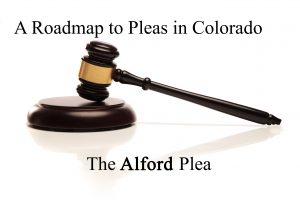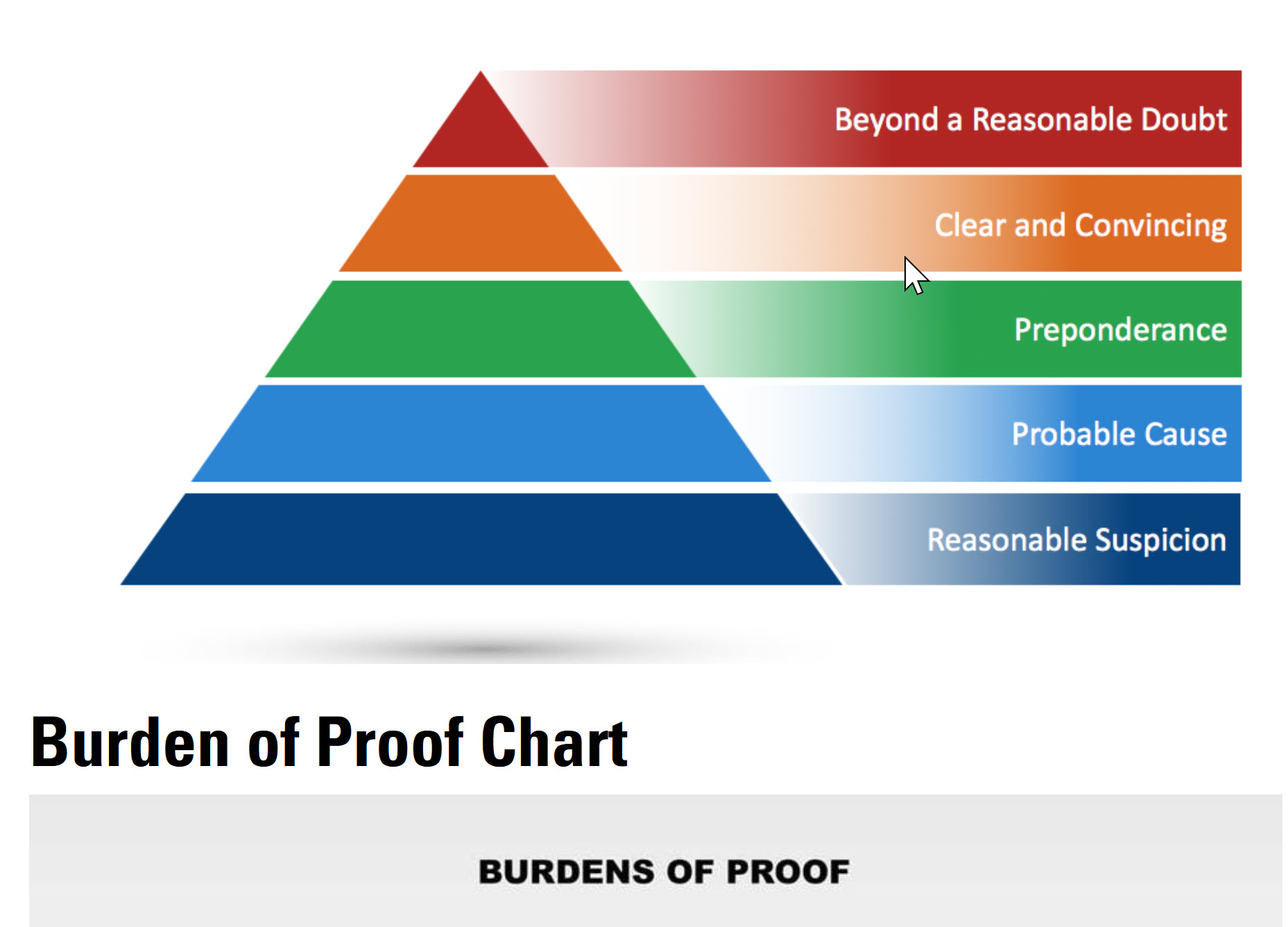A Roadmap to Pleas in Colorado – the Alford Plea

By H. Michael Steinberg Colorado Criminal Defense Lawyer
Introduction – Understanding Pleas the Role of Colorado Procedural “Rule 11″
Colorado Rule 11 (Colorado Rules of Criminal Procedure provides for three basic pleas in a criminal case (not including the NGI plea – not guilty by reason of insanity – not addressed here).
The “taking” of a plea under Rule 11 provides for:
- A Not Guilty Plea – (taking the case to trial).
- A Plea of Guilty – (resolving the case by plea agreement).
- An Alford plea – Nolo Contendere Plea (No Contest Plea) resolving the case by the rare, and sometimes misunderstood, “Nolo” plea agreement).
Understanding Rule 11
Rule 11 is the Colorado rule that governs the precise manner a Colorado Judge must follow when accepting or rejecting a plea agreement reads as follows:
Colo. R. Crim. P. Rule 11 – Pleas
(a) Generally. A defendant personally or by counsel may plead guilty, not guilty, not guilty by reason of insanity (in which event a not guilty plea may also be entered), or with the consent of the court, nolo contendere.
[HMS – Before a Colorado Judge will accept a plea – that Judge must determine the following factors as required by Rule 11:]
(b) Pleas of Guilty and Nolo Contendere. The court shall not accept a plea of guilty or a plea of nolo contendere without first determining that the defendant has been advised of all the rights set forth in Rule 5(a)(2) and also determining:
(1) That the defendant understands the nature of the charge and the elements of the offense to which he is pleading and the effect of his plea;
(2) That the plea is voluntaryon defendant’s part and is not the result of undue influence or coercion on the part of anyone;
(3) That he understands the right to trial by jury and that he waives his right to trial by jury on all issues;
(4) That he understands the possible penalty or penalties;
(5) That the defendant understands that the court will not be bound by any representationsmade to the defendant by anyone concerning the penalty to be imposed or the granting or the denial of probation, unless such representations are included in a formal plea agreement approved by the court and supported by the findings of the presentence report, if any;
(6) That there is a factual basis for the plea. If the plea is entered as a result of a plea agreement, the court shall explain to the defendant, and satisfy itself that the defendant understands, the basis for the plea agreement, and the defendant may then waive the establishment of a factual basis for the particular charge to which he pleads;
Plea Bargaining in Colorado
Plea bargaining is recognized as an inescapable part of the criminal justice process. It is so fundamental to the functioning of our “system of criminal justice,” it is carefully controlled under Colorado law in Sections 16-7-301 to – 303, C.R.S.
The State, represented by the District Attorney, in exchange for a guilty plea or plea of nolo contendere (no contest), has broad authority to agree to sentence concessions, to amend the original charges, to dismiss some or all of the charges, and/or, to make favorable sentencing recommendations when the sentence is imposed. (See Sections 16-7-301, 16-7-302 C.R.S.).
“Where it appears that the effective administration of criminal justice will thereby be served, the district attorney may engage in plea discussions for the purpose of reaching a plea agreement.” § 16-7-301(1); Crim. P. 11(f)(1).
While is clear under Colorado law that a person accused of a crime has no absolute right to have a plea accepted, it is equally clear that a trial court cannot reject a negotiated plea agreement on an arbitrary basis.
A judge may reject a plea in the exercise of that judge’s “independent judgment in deciding whether to grant charge and sentence concessions” but may do so “only in the exercise of sound judicial discretion.”)
The Plea “Options” Available Under Colorado’s Plea Bargaining Laws
Because of the importance of plea bargaining in the Colorado criminal justice system,I have often written on the laws and procedures surrounding plea bargaining – when and how it happens – the stages of plea bargaining, and the risks and benefits of entering into a plea bargain arrangement.
First, a quick review of the most common pleas:
The Not Guilty Plea – When a plea of not guilty is entered – you are stating to the state that you are innocent of all charges filed against you. You are entitled to all of your constitutional rights under Rule 11 that are “waived” (given up) when you accept a plea bargain and plead guilty. Among these important rights is the right to be presumed innocent and the right to demand the protection of the burden of proof in criminal cases – proof beyond a reasonable doubt. Importantly, if a Colorado judge refuses to accept a plea agreement, a not guilty plea is entered on the Defendant’s behalf.
The Guilty Plea – Black’s Law Dictionary defines a guilty plea as “a plea of a criminal defendant who does not contest the charges.” Guilty pleas that result from plea agreements comprise nearly 95 percent of all state criminal cases and 97 percent of all federal cases. Plea agreements are the result of negotiations intended to be conducted in good faith and at arm’s length between Colorado prosecutors and a Defendant.
While rare, there are cases where a “straight” plea of guilty (an “open” plea – where there is no plea agreement) is tactically necessary because of overwhelming evidence (such as a voluntary confession – video of the crime – etc.) and a District Attorney who refuses to negotiate or to compromise with what the defense would consider a fair and just offer to settle. This is the rarest of cases, but it can occur for many reasons.
The Alford Plea – “Nolo “Contendere (No Contest Plea) – An Alford Plea is the name lawyers use to describe a “no contest plea.” Sometimes it is called a “best-interests plea.” It also is very rare and must be accepted and fully agreed to by both the District Attorney and the Judge before it can legally enter into a criminal case. The reason “nolos” are rare is the plea allows a Defendant to walk a very fine line of not admitting guilt but conceding there is sufficient evidence to find the Defendant guilty at trial.
An “Alford” plea or plea of “nolo contendere” is a “common law” plea. It is a complex plea arrangement and involves the accused entering a guilty plea but also maintaining his innocence.
“Nolo contendere” is Latin meaning ‘I will not contest it.’ The complete Latin derivation of the term is a plea “non vult contendere”, literally meaning “I do not wish to contend” (Black’s Law Dictionary). The Alford plea tells the world, “although I am innocent, this plea is in my best interest.”
Who Was Alford?
Alford pleas derive from the 1970 U.S. Supreme Court case North Carolina v. Alford (400 U.S. 25).
In the Alford case, the United States Supreme Court held that entering a plea without admitting guilt is constitutional as long as the Defendant is doing it for a legitimate reason.
Today there are many reasons for an Alford plea agreement that are too numerous to list here. These pleas often occur where a Defendant has no recollection of the events due to intoxication, amnesia, or other forms of trauma.
An Alford plea, then, allows the accused to plead guilty where they are unwilling or, in some cases, unable to admit guilt. It is a compromise plea that can benefit both the Defendant and the Prosecutor.
The Key Advantage of an Alford Plea: Avoiding the Collateral Impact of Possible Civil Consequences
The burden of proof of the elements of a crime in a Colorado criminal case is “beyond a reasonable doubt.” In the absence of an Alford plea, this very high standard can bind a court in a subsequent civil lawsuit that is founded on the same evidence as in the criminal case.
The burden of proof in a civil case is the much lower standard of proof “by a preponderance of the evidence.” This is important because a plea of guilt in a criminal case is admissible in the subsequent civil case and can be used to prove the allegations in the civil case.

The primary benefit of an Alford plea is to allow a criminal defendant to resolve the criminal case without that criminal case plea being used against them in the civil case – if the former plea was based solely on the resolution of the criminal case.
The Impact of an Alford Plea is the Same as a Guilty Plea
The rub: Alford pleas have the same legal end-result as a straight-up guilty plea. While Alford pleas may give a Defendant the peace of mind that they admitted to the judge that they are guilty of the crime or crimes charged, the plea is the functional equivalent of a guilty plea.
The Colorado Defendant who knowingly, voluntarily, and understandingly pleads nolo contendere faces the same punishment as the Defendant who enters a plea of guilty.
There is no legally cognizable distinction between a plea of nolo contendere and a plea of guilty for sentencing purposes. Once A Colorado Judge has accepted a “nolo plea,” the Court’s power to punish is in no way limited except as provided by law.
A Hobson’s Choice – the Alford Plea and the Wrongfully Convicted
Those with experience in the criminal justice system often lose faith in that system. Many individuals, when faced with taking a case to trial with the consequent risk of a massive sentence to prison, “take the deal.”
Revisiting Alford
Henry Alford was indicted on first-degree murder charges in 1963. He had a prior murder conviction and, while innocent of the 1963 charge, would have been faced at trial with a witness who would testify that Alford had confessed to this crime.
Alford’s lawyer counseled that Alford accepts a second-degree murder guilty plea to avoid a death sentence and the Court allowed Alford to accept the plea while maintaining his innocence.
Whether Alford was innocent or guilty of the crime is not the issue here. The issue is the lack of justice in the criminal justice system.
Organizations such as the Innocence Project and others have established through hard fought exonerations of the wrongfully convicted that Alford pleas are used by prosecutors where the state’s case is weak and the Defendant faces unfathomable punishment with the odds at trial, not in their favor – even when they are innocent.
No matter what the possible evidentiary issues at trial, an Alford plea agreement ends the matter with a conviction.
Faced with the threat of spending many years or perhaps the rest of their lives in prison, innocent Defendants will accept a plea bargain that holds the promise of freedom at some point in their future as against the prospect of a possible conviction with much harsher consequences.
The Alford plea, to these individuals, provides a Hobson’s Choice that holds out at least a glimmer of hope for their future.
Summary and Conclusion – A Roadmap to Colorado Pleas in Criminal Cases – “No Contest” Pleas
Alford pleas serve a practical function in the administration of justice. A “nolo” plea allows the parties to avoid the risks, the expense, and the delay of trial. It is a “compromise plea” that benefits both the Defendant and the Prosecutor.
Notably many judges reject “no contest” pleas in the exercise of their judicial discretion. A Judge may view an Alford plea as a clear indication of a person who refuses to take responsibility for the crime he or she is accused of committing.
Furthermore, a Defendant cannot demand to enter a nolo plea agreement. If a nolo plea agreement is negotiated, it is usually the result of months of hard negotiations between the parties to the case. And, as just noted, it requires the consent of the presiding judge.
In the final analysis, an Alford or plea of nolo contendere may be the right choice in difficult cases. It is the hope of the writer that this brief article will assist in some way in understanding the “Alford plea agreement.”
“A person charged with a crime requires the guiding hand of counsel at every step in the proceedings against him. Without it, though he be not guilty, he faces the danger of conviction because he does not know how to establish his innocence.”
United States Supreme Court – Powell v. Alabama, 287 U.S. 45, 69 (1932)
If you found any information I have provided on this web page article helpful please share it with others over social media so they may also find it. Thank you.
Never stop fighting – never stop believing in yourself and your right to due process of law.
 ABOUT THE AUTHOR: H. Michael Steinberg – Email The Author at hmsteinberg@hotmail.com – A Denver Colorado Criminal Defense Lawyer – or call his office at 303-627-7777 during business hours – or call his cell if you cannot wait and need his immediate assistance – 720-220-2277. Attorney H. Michael Steinberg is passionate about criminal defense. His extensive knowledge of Colorado Criminal Law and his 42 plus years of experience in the courtrooms of Colorado may give him the edge you need to properly defend your case.
ABOUT THE AUTHOR: H. Michael Steinberg – Email The Author at hmsteinberg@hotmail.com – A Denver Colorado Criminal Defense Lawyer – or call his office at 303-627-7777 during business hours – or call his cell if you cannot wait and need his immediate assistance – 720-220-2277. Attorney H. Michael Steinberg is passionate about criminal defense. His extensive knowledge of Colorado Criminal Law and his 42 plus years of experience in the courtrooms of Colorado may give him the edge you need to properly defend your case.
H. Michael knows how to talk clearly and very directly to his clients, his adversaries, and to the Court. He uses his life experience, common sense, and straight talk to put help clients fully understand and make decisions regarding their realistic options.
If you are ready to talk, H. Michael stands ready to help.
 Colorado Criminal Lawyer Blog
Colorado Criminal Lawyer Blog

